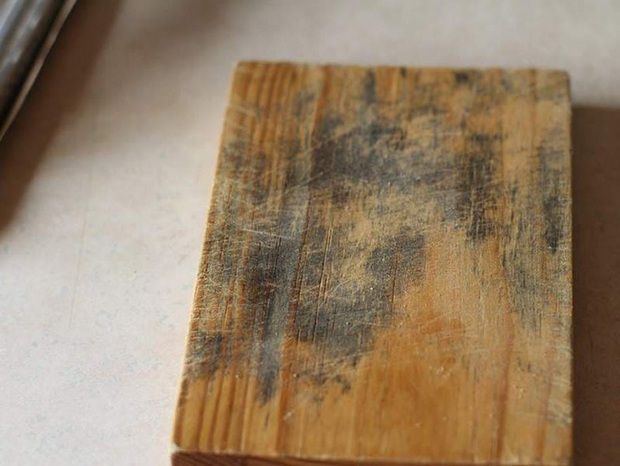Sometimes, misguided thriftiness can lead us to pay a hefty price with our health, and sometimes even our lives.
We all know that thriftiness is a good quality, but it has to be exercised at the right time and in the right place. Whether rich or poor, extravagant or frugal, there are 5 things we shouldn’t be too economical about. It’s best to discard them when they are old; otherwise, regret might come too late when illnesses start piling up:
- Expired cosmetics
In reality, cosmetics have an expiration date, especially after being opened. However, many people pay little attention to this or only focus on the expiry date before opening the product, continuing to use it until it’s completely finished.
Yet, many products like lipsticks, lotions, eye shadows, etc., typically have a shelf life of 6 to 12 months after opening. Some people go for bulk purchases, and even when they realize the products have expired, they continue using them to save money.
When cosmetics and skincare products pass their expiration date, the chemicals in them may alter and generate harmful substances, causing skin irritation or even more severe damage. They’re also prone to developing mold and posing other health risks. Therefore, when buying, pay attention to the labels, regularly check the expiry dates during use, and discard them as per the manufacturer’s recommended timeline.
- Old plastic containers
Over time, plastic containers may release harmful chemicals, like bisphenol A (BPA), which can leach into the food and beverages stored in them. Prolonged exposure to these chemicals can have negative effects on the human body, especially with low-quality, widely available plastic containers.
Moreover, even good-quality plastic containers should not be used for too many years, especially if regularly used for hot food or in the microwave, as they can release harmful chemicals into the food. Additionally, they might warp or get damaged, compromising their ability to preserve food and allowing bacteria to invade.
Old plastic containers may become yellowed or stained by food, oil, or mold, making it difficult to completely clean or sometimes even visibly unclean. It’s best to replace plastic containers regularly, immediately if they show any abnormalities compared to when bought or after 1-2 years of use even if not damaged.
- Pillows used for a long time
The comfort of pillows affects both sleep quality and our health. Never assume that frequent washing will keep pillows usable forever.
Firstly, pillows used for many years will change in color and shape, affecting sleep, bone and joint health, breathing, and skin.

Secondly, pillows also accumulate a lot of bacteria from sweat, dead skin, hair, and daily dirt. Studies in the US suggest that pillowcases and bed sheets not washed for a week can produce 3 million bacteria, which is 17,000 times higher than a toilet seat. This number can reach 10 million if unwashed for 4 weeks. Also, no matter how thoroughly you wash, the inner stuffing like memory foam or cotton may not be thoroughly cleaned after a long time.
According to health and sleep experts, different pillow materials have different replacement times. If your pillow is filled with artificial cotton, you should replace it every 6 months. For memory foam or supportive pillows, it should be changed after 18-36 months. Latex pillows have a longer lifespan, around 3 to 4 years. Polyester-filled pillows have a shorter lifespan and should be replaced every six months. It’s best to change cotton and silk pillows after 1 to 3 years. Pillowcases should be replaced every 6-12 months and washed at least 2-3 times a week.
- Bath towels and undergarments
Saving on bath towels and undergarments is a dire thriftiness affecting health. Towels generally have a useable life of 2-6 months; therefore, it’s advisable to avoid using them beyond this period as their quality deteriorates and can harbor more bacteria, which are harmful to the skin. Additionally, towels should ideally be washed every 2-3 days for proper hygiene.
Similarly, undergarments in daily contact with breasts and intimate areas can harbor many bacteria. Over time, they can change color, become yellowed, and easily host parasites. While airing out undergarments, dust mites suspended in the air can cling to them. Particularly for women, undergarments can wear out, discolor, or become soiled due to acidic secretions or milk properties from the nipple.
According to health experts, undergarments should be washed daily and, if necessary, boiled to disinfect. Undergarments should have the shortest life span of three months and the longest span of six months before being replaced. Moreover, if undergarments become deformed, stiff, or damaged and cannot be thoroughly cleaned, they should be immediately disposed of and replaced. Besides discomfort, they can cause various urogenital diseases and even affect the shape of the breasts.
- Overused wooden chopsticks and cutting boards
Chopsticks and cutting boards are essential in every kitchen. However, they also carry the risk of causing diseases, including cancer, if not cleaned or replaced correctly, especially wooden chopsticks and cutting boards.
Over time, they become rough, cracked, absorb water and food residue, and are challenging to clean. They are likely to stay damp and grow mold, producing the carcinogen aflatoxin.
According to research from the US Food and Drug Administration (FDA), aflatoxin is heat-resistant and remains undestroyed by standard cooking methods, making it difficult to handle. So, even if you use these chopsticks or cutting boards for hot food or clean them with hot water, you may not completely eliminate the toxic substance.

It’s best to replace chopsticks every 3-6 months regularly. When washing chopsticks, use a dedicated dishwashing sponge to clean each one instead of rolling them in your hand. This method may not be enough to clean them, especially when washing several pairs at once. Also, ensure thorough cleaning of wooden cutting boards, choose high-quality ones, and replace them regularly every 6 months to 1 year. Wash wooden chopsticks and cutting boards with warm water, store them in a dry place, regularly disinfect them with antifungal agents, and always rinse them before each use.












